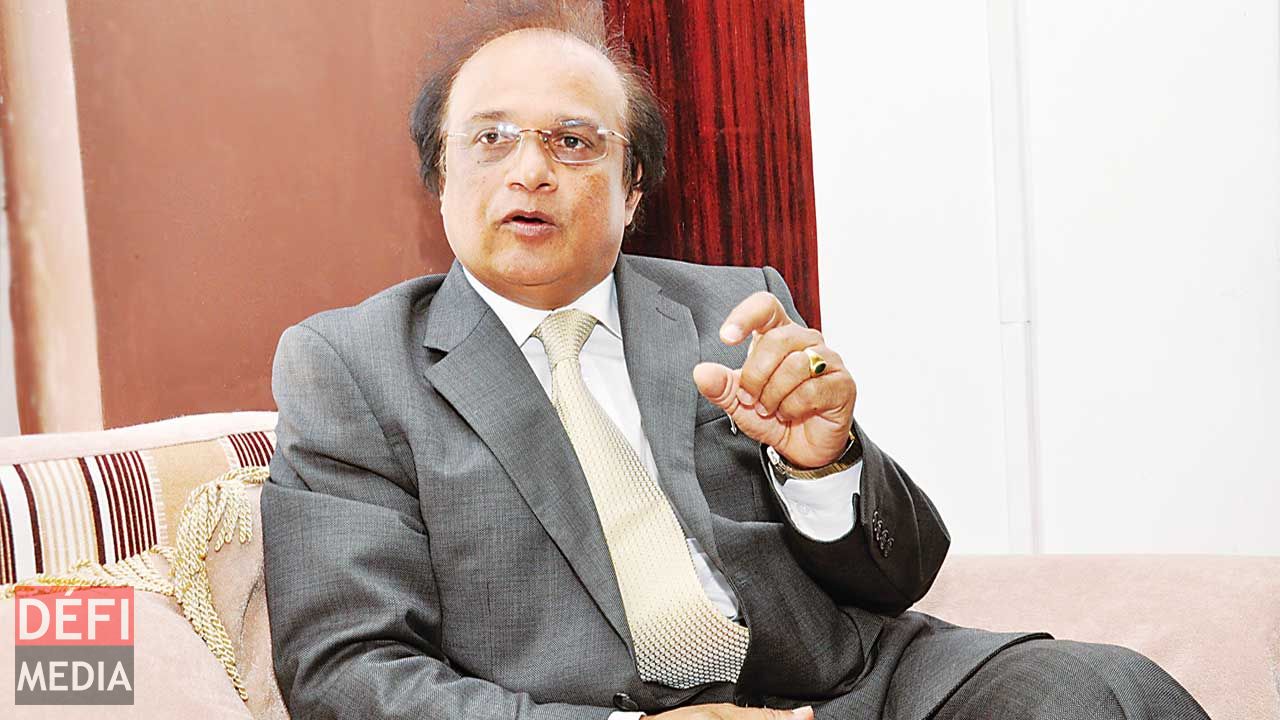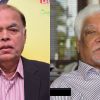
The National Assembly is due to resume debates on Tuesday 28 March at 11.30 am. Given all the buzz around the role of the Speaker, News on Sunday has called upon Barrister Ajay Daby, himself a former Speaker to shower some light on this crucial democratic institution which has been marred with criticisms for some years now.
Publicité
What is your assessment of the current situation regarding the National Assembly?
The National Assembly is a product of democratic wisdom at its best. It is perennial, long-lasting, born from the depths of conflict, confusion, consensus, civility, orderliness, and will continue to exist beyond you, beyond me, beyond Sir Harilall Vaghjee, Sir Seewoosagur Ramgoolam, Sir Anerood Jugnauth, Paul Berenger, Sir Gaetan Duval, etc... Whenever there is chaos in Parliament, the newcomer would tend to believe it’s doomsday. But, no. I am not worried about its future. I am only sorry for those who are missing opportunities to live every moment of it, and stand up to the challenge of excellence, pertinence, relevance towards achieving public good, and the country’s wellbeing. I learned over the years that as a Speaker, I should be more detached from the heat of the moment, and facilitate process, instead of giving the impression of being upset. The more I got to know the MPs, the easier it was to get along with a lot of humour. I took time. I left the party structure and had a cleaner conscience whilst presiding over Parliament. This gave much more prestige to the post.
Do you think that the National Assembly still holds the prestige of former days?
I feel it still has the strength that it should have, as nobody is questioning its existence. However, I note that its impact on the common people is much less felt because many frontline politicians are new and do not have a big audience individually as opposed to the platform that the party offers. High calibre individuals, regardless of the party, always command attention. This Parliament will have to do some digging and give to itself a sense of history capable of making even the weak feel strong, and the simple look grand. It must catch the curiosity of the common man. The contemporary parliamentarian must reinvent himself and fight for a goal. There must be a display of inspiration and commitment, of drama and knowledge. The musical chair of alliances looks disgusting, and has taken away the drive from government. Political opportunism should be avoided. Parties and people should think in terms of performance first. Parliament should maintain its sense of formality and protocol. Institutions must exist in form and tenure.
Why, in your opinion, is you the Chair being accused by MPs of bias and protection?
There is an impression that when the law was passed to appoint a Speaker who does not go for elections in a constituency as an elected MP, should not participate in partisan activities, neither during elections, nor after elections when his name is chosen by the leader of the majority. The law does not say that the person who is chosen, apart from non-participation in political activities, should be apolitical, nor does the law say that the Speaker should not come from the political fraternity. This leads to confusion, the more so when one does not understand the system. The problem of dissatisfaction with the Speaker will always exist BUT it should not persist...
Put simply, my view is that this post is not meant for somebody alien to politics, or separate from the political fraternity. It is not a sinecure for a retired Judge or Chairman of a Tribunal. The Speaker is part of the Chamber of Commoners. He is one of them. He does not apply the procedures of a Court of law. This is a House of Commoners. There is no rigour here. He simply should facilitate the process of discussion and decision. He must understand politics. He must respect political priorities and agendas of parties. He must come to the aid of a confused parliamentarian and very often, free Parliament from deadlock and avoid being the reason thereof. Impartiality should not imply being hostile to government. Fairness should not mean collusion with opposition. Our system now believes in a Speaker who believes in Parliament, and not the party. Tough challenge indeed! The profile of the Speaker, his profession, his background, his experience, and his status in life do count a lot in the way he discharges his duties.
Should the Chair be subjected to criticism, going so far as to propose a motion of disallowance?
There is a difference between a motion of disallowance and a motion of censor and a motion of dissent. Motions of disallowance are designed to invite Parliament to disagree with a Regulation that has the effect of law. Regulations are made by Ministers whereas laws are made in Parliament. This procedure allows for discussion on the ambit of Regulations inside Parliament, though made within Ministries. Motions of Censor are designed to express views on conduct and performance of individuals at least, and Governments at most.
Motions of Dissent are more intellectual in implication when it relates to the rulings and the views of the Speaker. There is no “censorship” implication against the person of the Speaker, but he is subjected to or exposed to the views of members generally on matters that relate to the running of Parliament and may include interpretation of Standing Orders with the views of technicians and lawyers and experienced Parliamentarians. The Speaker is not a Sergeant-Major, who should disregard views of others. We are an Assembly of Peers! We belong to the system!
Should Standing Orders be revamped for a better conduct of debates?
Standing Orders should be revisited. Many have gone in desuetude, are worthless, meaningless and serve no purpose. There are new challenges in modern public life. Parliament has to adapt. We should have ways and means of allowing Parliament to control management and expenditure at the level of parastatal and other statutory bodies where government has interests. There is a lot of mismanagement that evades public scrutiny, and unduly exposes government. Select Committees on specific issues normally should be allowed to sit away from plenary sessions. What we normally understand as Parliamentary vacations in our System, should imply a bee-hive of activities inside Parliamentary buildings. Public Expenditure Committee should be allowed to sit as a Select Committee with the purpose of scrutinising projects and expenditure to be budgeted before their launching, whilst the Public Accounts Committee should be allowed to continue to scrutinise after expenditure. The Public Expenditure Committee is now a necessity. Public administration is too complex.
What should be done or amendments brought so that the House commands respect, as in the days of Sir Harilall Vaghjee?
Sir Harilall Vaghjee belonged to the pre and post-colonial independence era. Upon appointment, he was guaranteed a seat in Parliament for life, without having to go for elections, whilst SSR, who conferred him that privilege, had to bear the brunt of conflict in elections. He was a barrister and a friend of SSR till their relationships soured and his detachment was proverbial to the extent that it is widely known that he did not interfere with any political activity inside the House that led to the debacle of SSR in 1982. I have no comments on his Speakership, as circumstances were different for him to operate.

Notre service WhatsApp. Vous êtes témoins d`un événement d`actualité ou d`une scène insolite? Envoyez-nous vos photos ou vidéos sur le 5 259 82 00 !





















